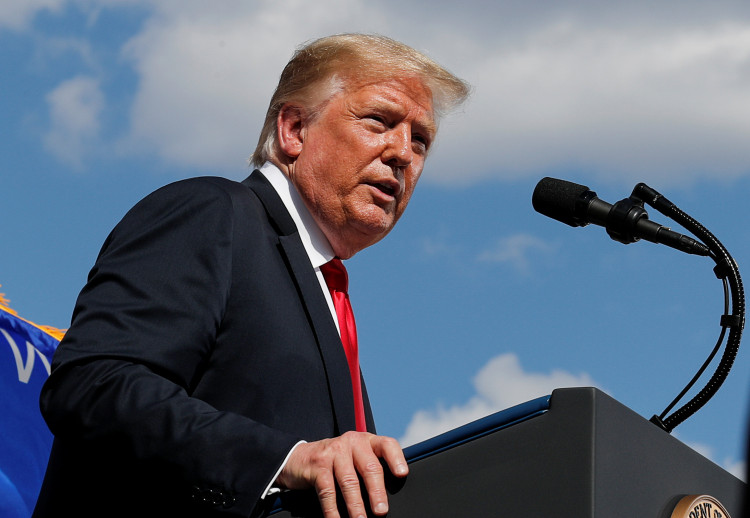Federal Judge Aileen Cannon expressed skepticism towards former President Donald Trump's arguments that the FBI's search warrant for his Mar-a-Lago estate was invalid. This development occurred during the third and final day of oral arguments in Fort Pierce, Florida, as Trump's legal team sought to suppress evidence seized during the August 2022 search.
Trump's attorney, Emil Bove, argued that the warrant was overly broad, unjustly permitting agents to search the entire Mar-a-Lago premises. However, Judge Cannon appeared unconvinced, stating, "I have a hard time seeing what more needed to be included" in the warrant's description of the search areas and the documents that could be seized.
The case against Trump, personal aide Walt Nauta, and Mar-a-Lago property manager Carlos De Oliveira involves charges of mishandling classified materials and obstruction. All three have pleaded not guilty.
Bove contended that the investigators' approach was too general for a property as extensive as Mar-a-Lago, with over 50 rooms. "They purported to look for classified documents in a gym and a kitchen," Bove noted. Cannon, however, responded by emphasizing the potential for documents to be found anywhere on the property, saying, "You would agree that paperwork, though, could be located anywhere."
Prosecutors argue that classified documents were discovered in various locations at Mar-a-Lago, including a ballroom, bathroom, and bedroom. This assertion undercuts Bove's argument about the specificity required in the search warrant.
The hearing saw further tension when Cannon and prosecutor David Harbach clashed. Harbach criticized Bove's implication that internal FBI dissent regarding the search warranted further investigation. Cannon quickly moved to wrap up the nearly two-hour hearing, cutting off Harbach's attempt to discuss the defense strategy further.
Earlier in the day, Trump's lawyers argued that the Mar-a-Lago search violated his constitutional rights due to a lack of probable cause. They claimed the search was excessively broad, encompassing areas like former First Lady Melania Trump's bedroom and the gym, which they argued were irrelevant to the search for classified documents.
Cannon questioned the defense's stance, pointing out that classified documents could potentially be found anywhere within the property. Bove insisted that the FBI agents conducting the search were not adequately briefed on where to search and what to consider as personal records versus classified materials.
Special Counsel Jack Smith, present in court, countered by arguing that the defense had not made a substantial case for false statements or reckless disregard for the truth in obtaining the search warrant. He labeled the defense's arguments as falling "woefully" short of the required proof for triggering an additional evidentiary hearing.
The defense's call for a "Franks hearing," aimed at challenging the validity of the warrant, met with skepticism from Cannon. She took the motion under advisement but expressed doubts about its necessity.
Trump's legal team also took issue with the seizure of personal documents during the raid, such as medical and tax records. Cannon inquired about the relevance of such items, to which Harbach responded that the warrant authorized the seizure of entire boxes that contained a mix of items, some of which were later returned to Trump.
Harbach defended the FBI's execution of the search, asserting that the agents acted professionally and within the scope of the warrant. He dismissed the defense's portrayal of the search as egregious, emphasizing that standard FBI protocol involves agents carrying firearms.
In a rebuttal, Bove maintained that the defense needed a hearing to address the issues surrounding the search warrant. He argued that the FBI's actions required further scrutiny, stating, "Your challenge is a particularity challenge. I don't see what else should have been [in the attachments given to the magistrate judge]."
As the hearing concluded, Harbach accused Trump's defense attorneys of attempting to "hijack the hearing" by introducing unrelated allegations. Cannon dismissed this claim, stating that the hearing was simply coming to an end.






